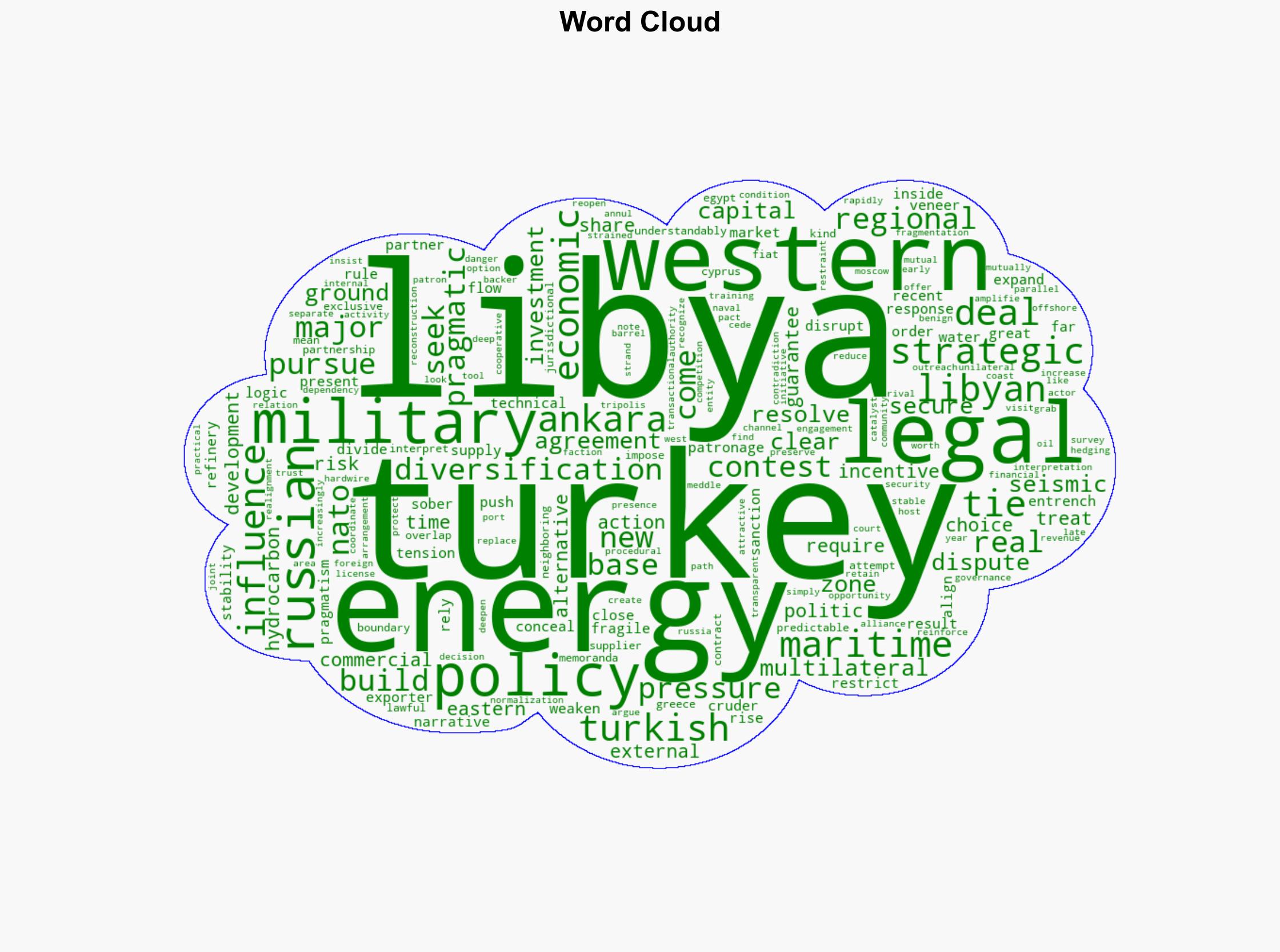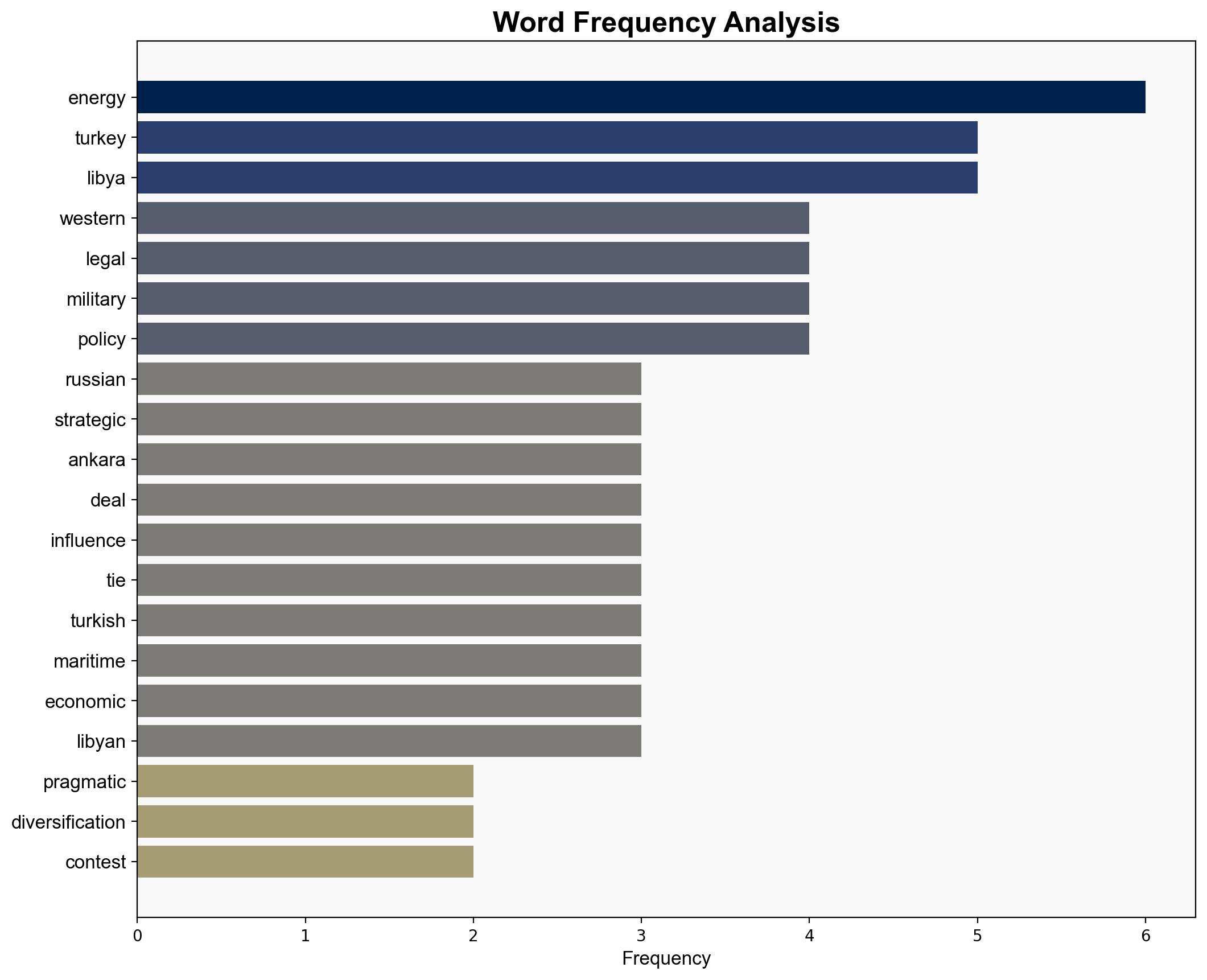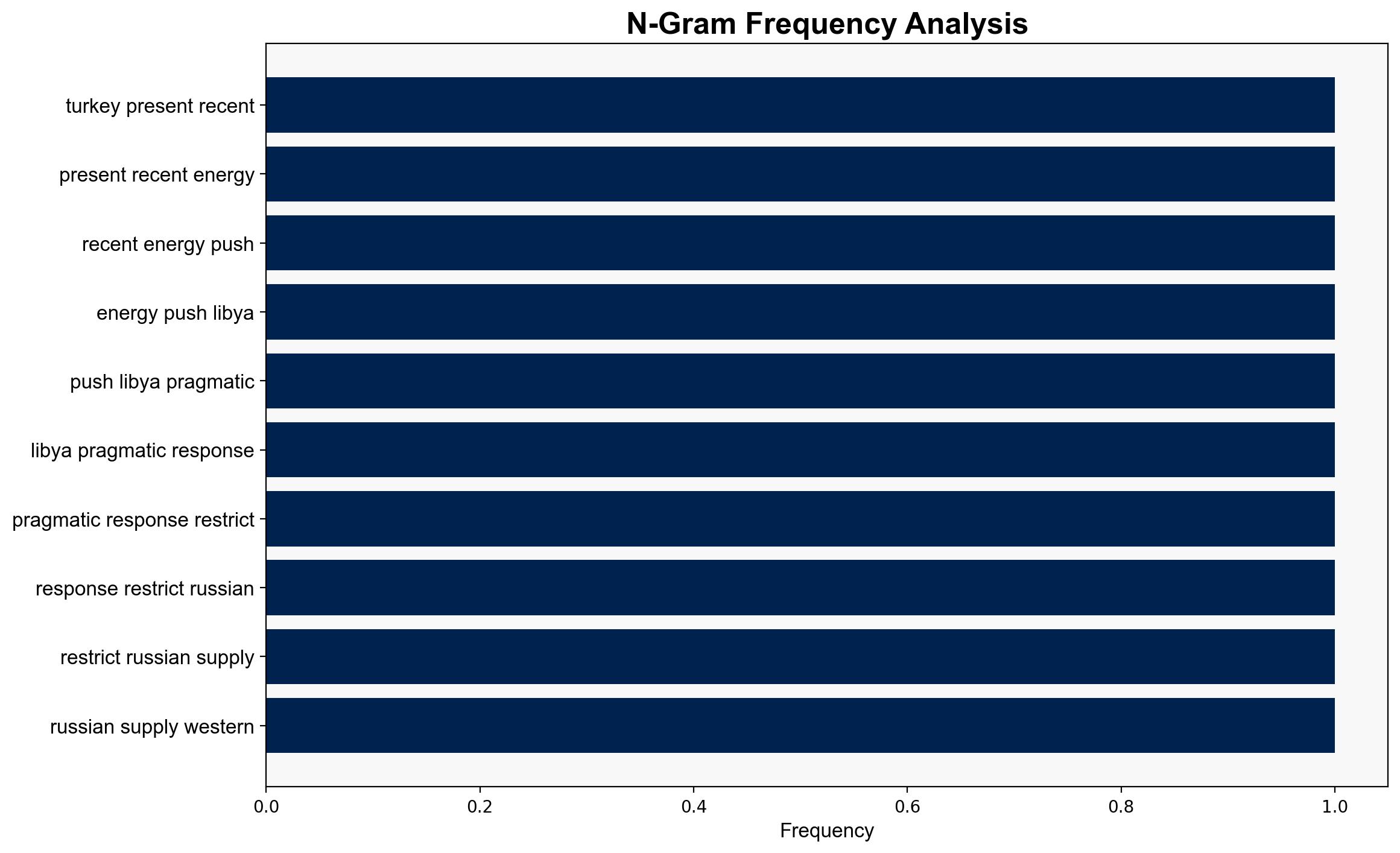Turkeys Pro American energy gambit is a geopolitical hazard – Israelnationalnews.com
Published on: 2025-11-07
Intelligence Report: Turkeys Pro American energy gambit is a geopolitical hazard – Israelnationalnews.com
1. BLUF (Bottom Line Up Front)
Turkey’s energy strategy in Libya, while framed as a pragmatic diversification move, may be a geopolitical maneuver to expand influence and counterbalance Russian ties. The hypothesis that Turkey is using energy deals to entrench its regional power is better supported. Confidence level: Moderate. Recommended action: Engage in diplomatic efforts to address maritime disputes and promote multilateral energy cooperation to mitigate regional tensions.
2. Competing Hypotheses
1. **Hypothesis A**: Turkey’s energy initiatives in Libya are primarily driven by economic necessity and the need to diversify energy sources away from Russia, aligning with Western interests.
2. **Hypothesis B**: Turkey’s energy deals in Libya are a strategic geopolitical maneuver to expand its influence in the region, using energy as a tool to assert control and counterbalance its strained relations with NATO and reliance on Russia.
Using ACH 2.0, Hypothesis B is better supported due to Turkey’s increased military engagement in Libya and the strategic implications of its maritime agreements, which suggest a broader geopolitical agenda beyond mere economic diversification.
3. Key Assumptions and Red Flags
– **Assumptions**: Hypothesis A assumes Turkey’s primary motivation is economic, ignoring potential strategic objectives. Hypothesis B assumes Turkey’s actions are primarily geopolitical, possibly underestimating genuine economic pressures.
– **Red Flags**: The annulment of parts of the Turkey-Libya hydrocarbon agreement by Libyan courts suggests legal and procedural vulnerabilities. The lack of transparency in Turkey’s maritime agreements raises concerns about unilateral actions.
4. Implications and Strategic Risks
– **Geopolitical**: Turkey’s actions could exacerbate regional tensions, particularly with Greece, Cyprus, and Egypt, potentially leading to military confrontations.
– **Economic**: Disruption in Turkish energy supplies could occur if legal disputes over maritime zones escalate.
– **Psychological**: Turkey’s dual alignment with NATO and Russia creates uncertainty in regional alliances, potentially destabilizing existing partnerships.
5. Recommendations and Outlook
- Engage in multilateral diplomatic efforts to resolve maritime disputes legally and transparently.
- Promote cooperative energy development initiatives that include all regional stakeholders to reduce tensions.
- Scenario Projections:
- Best: Successful multilateral agreements lead to stable energy supplies and reduced regional tensions.
- Worst: Escalation of military tensions in the Eastern Mediterranean disrupts energy supplies and regional stability.
- Most Likely: Continued diplomatic stalemate with sporadic tensions, but no major conflict.
6. Key Individuals and Entities
– Turkey
– Libya
– Greece
– Cyprus
– Egypt
– NATO
– Russia
7. Thematic Tags
national security threats, regional focus, geopolitical strategy, energy diversification





